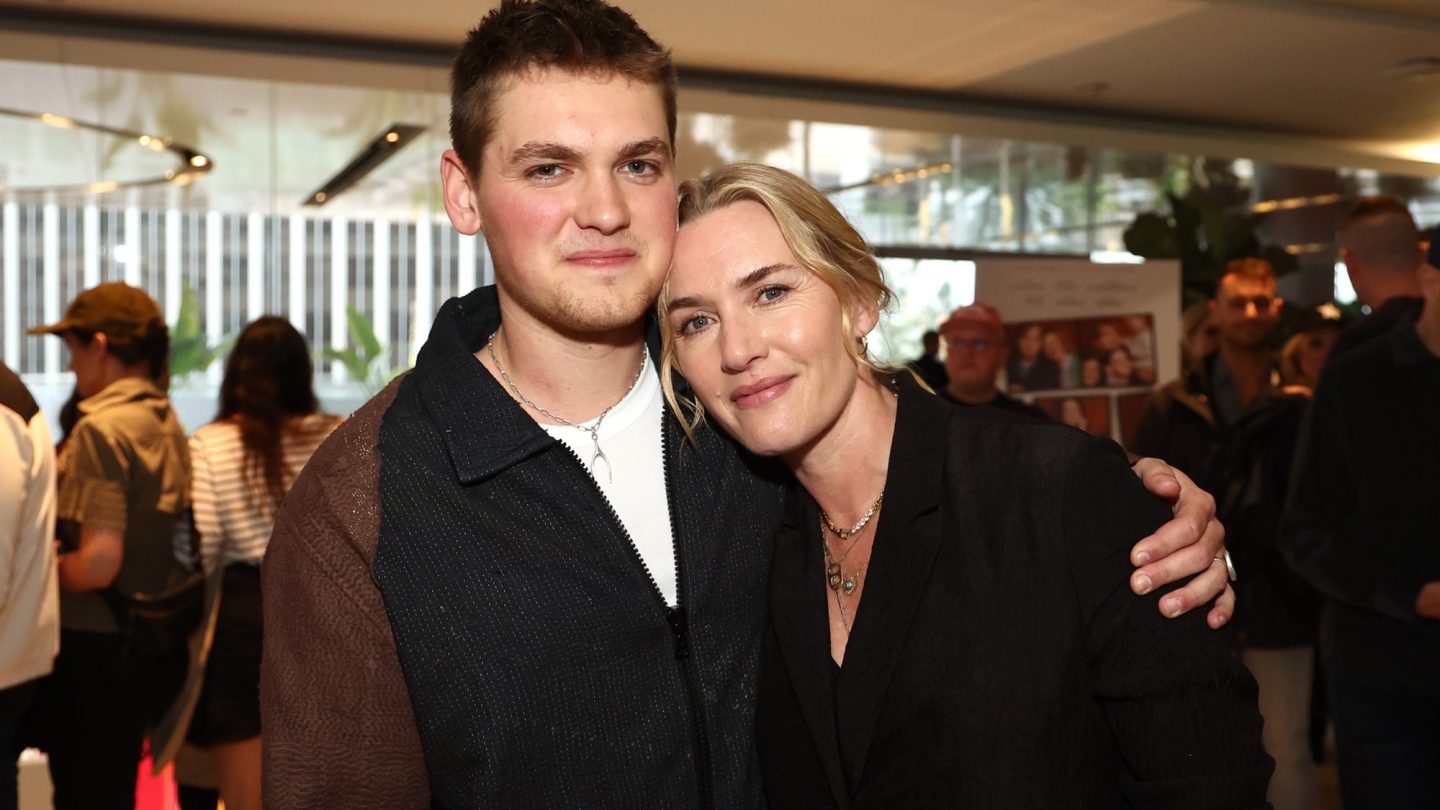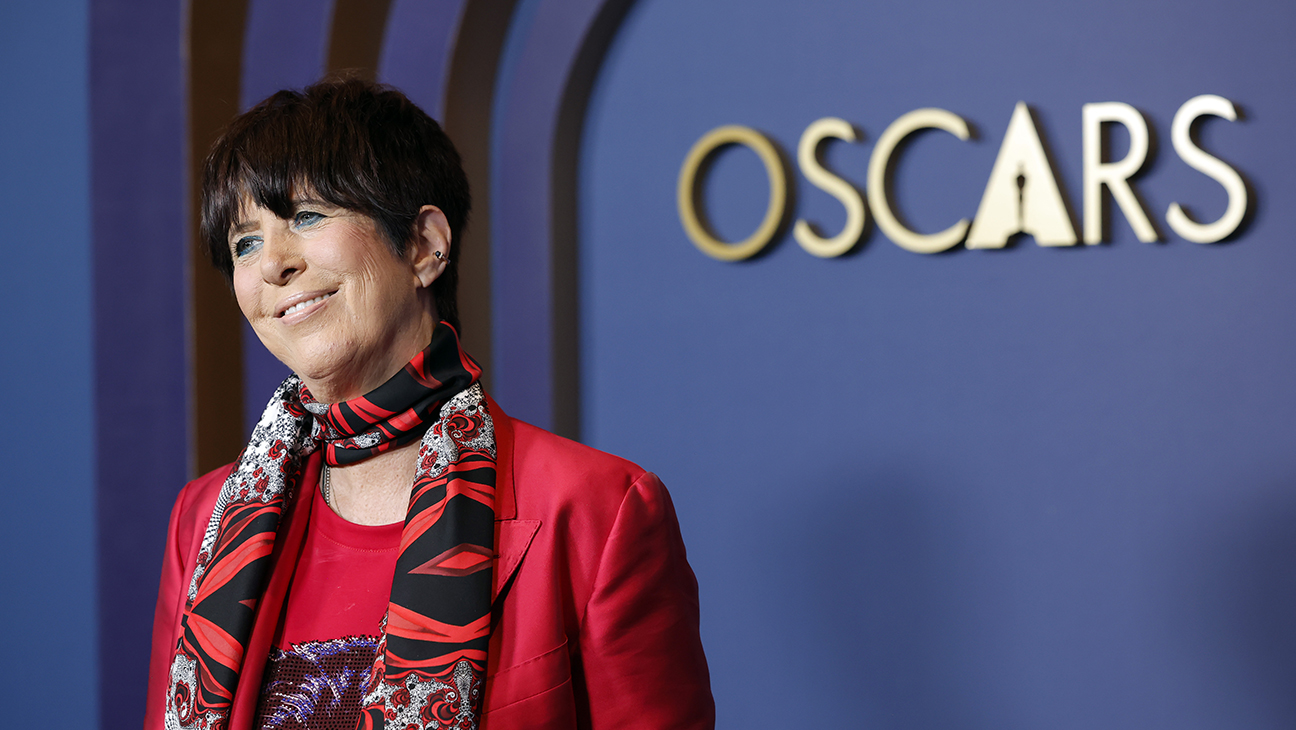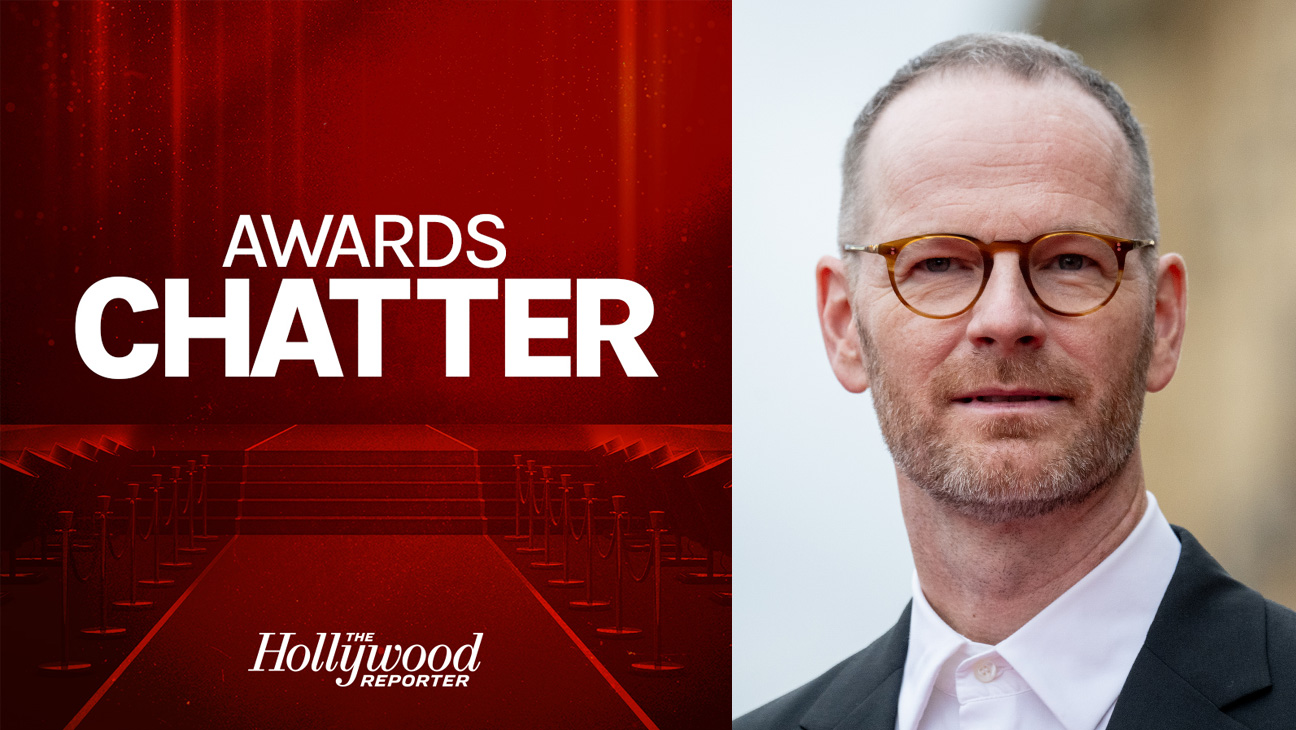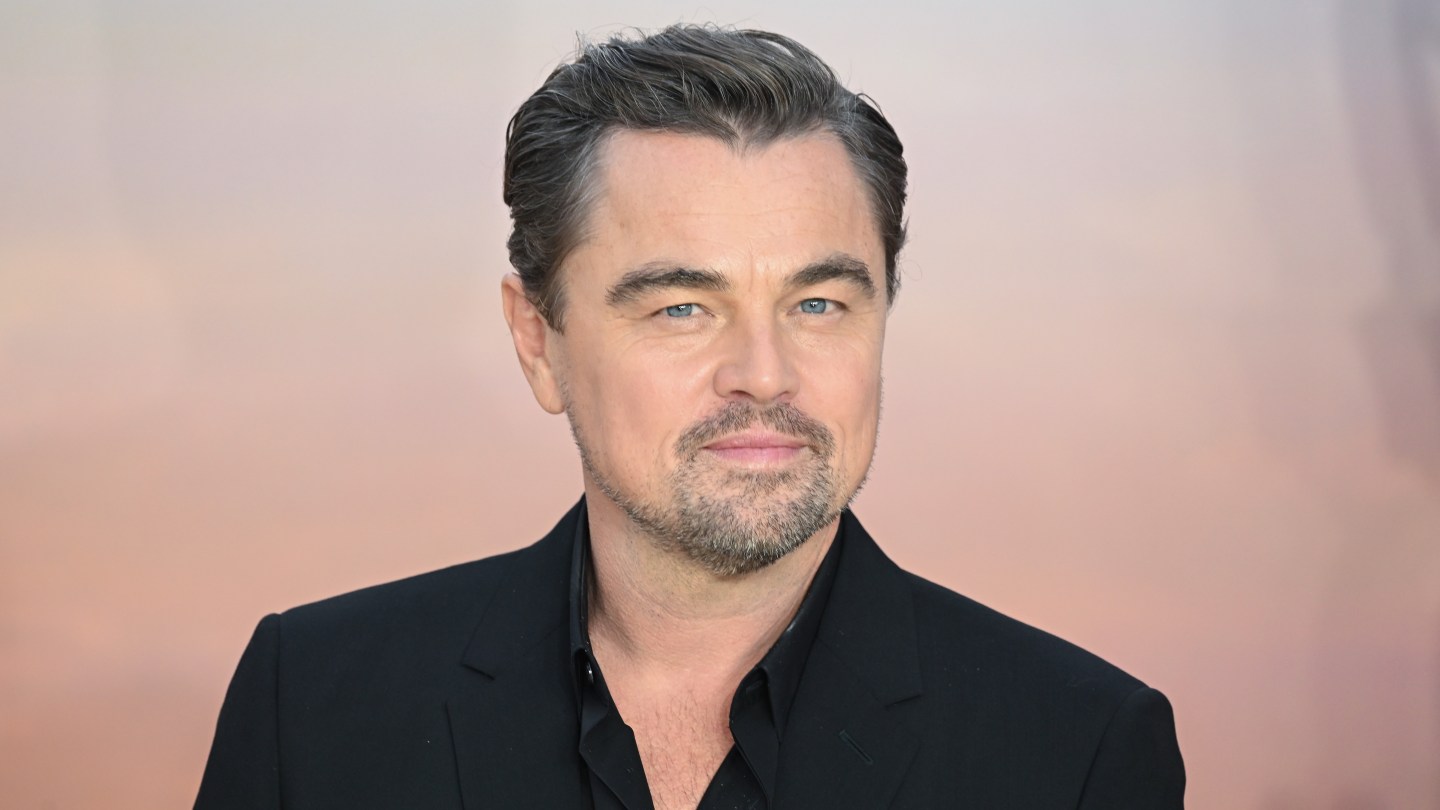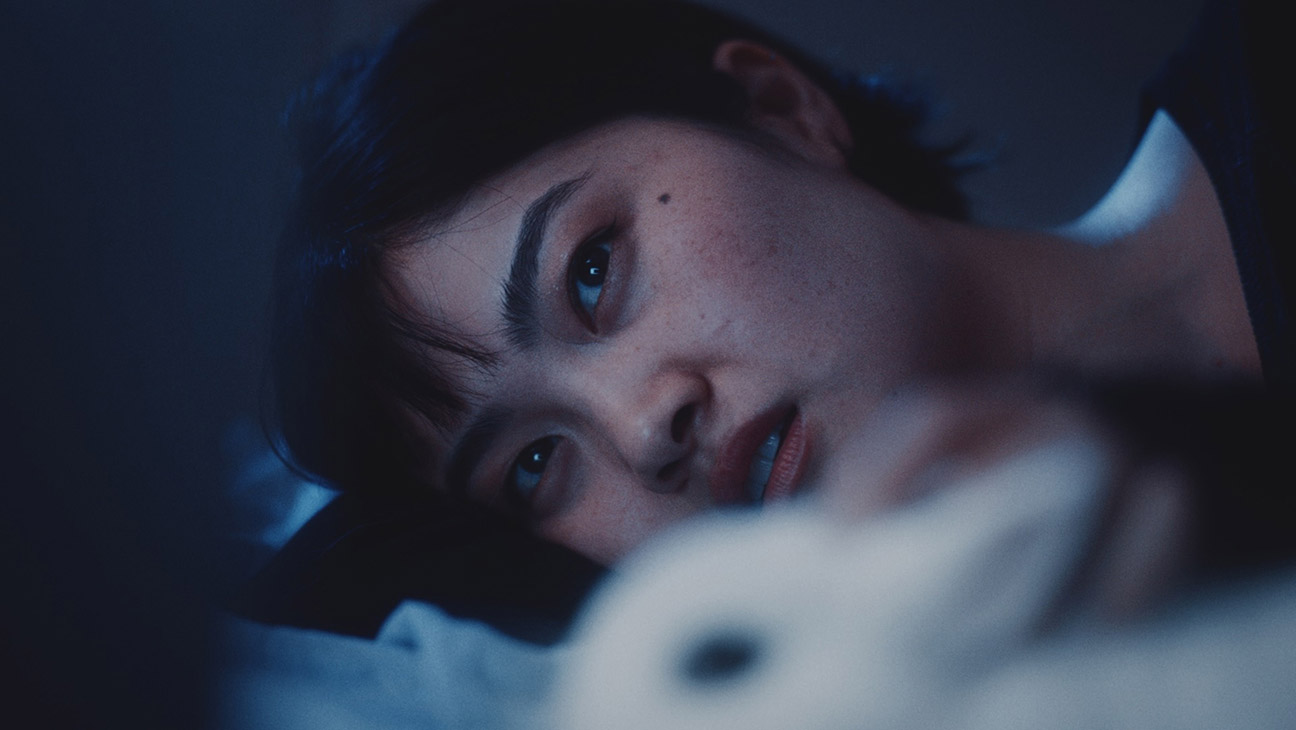Kate Winslet and Joe Anders have a habit of interrupting one another. In a typical interview scenario, this might indicate some tension — it’s not like the director and the screenwriter of a movie always get along — but here, the effect is anything but. They talk over one another in excitement over having professionally collaborated together for the first time. They’re still getting used to interviews, just beginning the rollout of their moving new film, Goodbye June (in theaters Dec. 12, and streaming on Netflix starting Christmas Eve). And it’s not like they don’t know each other very well. Ultimately, here’s an endearing example of a mother and son with some history in finishing each other’s sentences.
The 21-year-old Anders wrote Goodbye June as part of his screenwriting course at the National Film and Television School in England, inspired by the vivid emotional experience of watching his grandmother — that is, Winslet’s mother — slowly passing away in the hospital after a long battle with cancer. “The majority of the people in that room were from that one woman, and all of the people in that room were there for that one woman at that one period in time,” he tells THR, as Winslet nods along in the Zoom window beside his. “And that was the only thing that mattered.” Anders’ script for Goodbye June honored this core idea even as his characters and dialogue were fictionalized. He finished the NFTS course with the script not quite yet done, but wanted some feedback on whether he had something.
So he shared the unfinished draft with Winslet. “I wasn’t pitching it, I wasn’t doing anything like that — I didn’t have it in my mind to make a movie of it at all,” he says. But Winslet was impressed. She said she thought the script was great and worth trying to make as a film, to which Anders balked: “I was like, ‘Mum, no, you don’t need to do that — you don’t need to pretend just because you’re my mum.”
“He never believed me — even now, he still doesn’t believe me,” Winslet says. “Joe definitely did feel like, ‘But will people just think that this only happened because you are my mother?’ I kept saying to him, ‘If the script was a piece of shit, then yes. But it’s not.’”
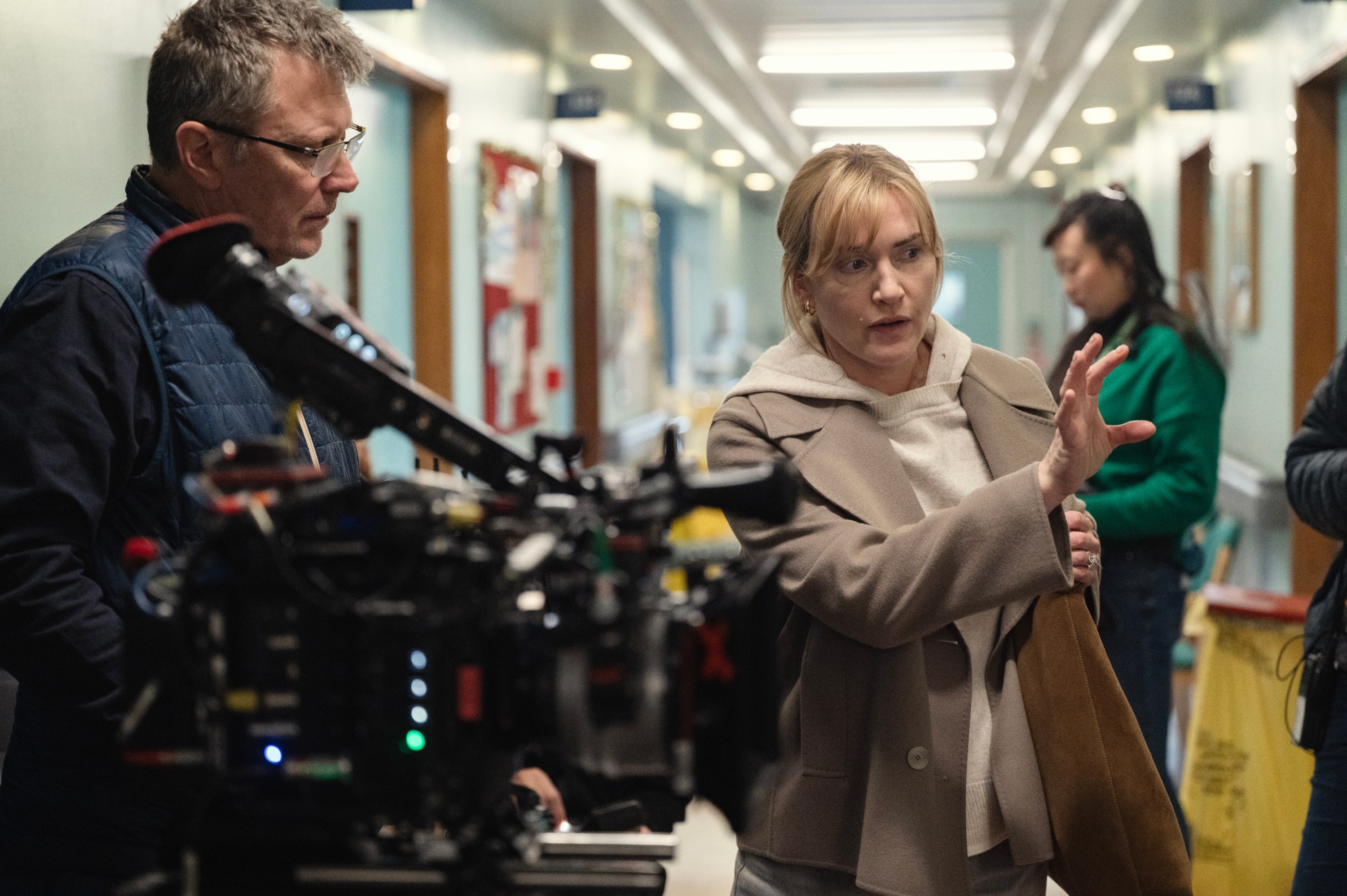
Anyone who’s followed Winslet’s career can see she’s been gearing up to direct. The Oscar-winning actress, who turned 50 last month, has taken more charge behind the scenes over the last few years. She served as a lead producer on recent acting projects including Mare of Easttown (for which she won an Emmy) and Lee (nominated for a Golden Globe). With Goodbye June, Winslet connected deeply to what Anders had written, but is open about the fact that her final choice to direct also had a great deal to do with keeping such a personal project close to the both of them.
“There’s this thing that happens when a director comes on — I’ve always found it so strange, but the writer just disappears. I couldn’t bear the thought of that for Joe,” Winslet says. “I didn’t want Joe’s experience to stop at the point that he’d delivered the script. I wanted it to open up immediately from that point, because that’s the most important stuff, when it becomes the most exciting — when you see the actors lifting it off the page and putting the words that you’ve written into their mouths and making it their own.”
They got to work on finishing and refining the screenplay. “It is interesting to try and figure that out when, your whole life, the dynamic has been mother and son — and then all of a sudden it’s director and writer,” Anders says. “But I never thought I’d be in a position where I’d work with one of my parents, who have been in the industry for so long, but feel like we were just starting out together.” (Anders’ father is Oscar-winning filmmaker Sam Mendes, Winslet’s husband from 2003-2011.) In other words, Anders may be a first-time screenwriter, but his mother — for all her accolades and experience on film sets — was wading into uncharted territory herself, making her directorial debut.
They had their disagreements, and there were moments when Winslet had to show Anders the ropes — like when his first finished draft was too heavy on descriptors, but too light on dialogue. “I had to find a way of saying to my son, ‘This is fantastic. Cut it in half,’” Winslet says. “Or one of us would have a bad idea and the other person would think, ‘Well, I’m not sure about that’ — we definitely did have some of those.” Eventually, Netflix signed on, which both complicated the process — Anders wasn’t just getting notes from his mother, but a major international studio — and bonded the pair.
“There was this great moment of like, ‘Okay, fuck me. We’re in this. Okay, we’re hanging onto that — non-negotiable. We can totally be open to talking about that scene. And yes, we could move that one,’” Winslet says. “It was never a fight, but we had to stand our ground in certain areas and be willing to bend and adapt in others.”
Winslet, who also produced Goodbye June with Kate Solomon, highlights one area of the script that both she and Anders prioritized from the beginning: “It mattered to us so much to mirror real life in the way that life is today. Having a child with Down syndrome mattered enormously to us. One of our children was high-functioning autistic. And we have a child who presents as a girl, but is 100 percent a boy,” she explains. “I would say to everybody, ‘I’m just going to remind everyone again: We do have a male actor who absolutely dresses like a girl and is a boy. His pronouns are he/him.’ Everyone was amazing with it.”
If that sounds she’s describing a lot of kids on set, well, she is. Goodbye June takes place predominantly in the hospital room where our eponymous matriarch (Helen Mirren) is dying, joined by her husband (Timothy Spall); her four children (Winslet, Andrea Riseborough, Toni Collette and Johnny Flynn); and her many grandchildren. “Mum’s personality actually lent itself to the project — she really ran a set for actors,” Anders says. “She was aware of how to make everything as naturalistic as possible. A lot of the time in the hospital room, she kept the cameras rolling for long, long periods of time and was picking up stuff that these kids were doing that they weren’t even aware they were being filmed.”
Winslet adds with a laugh: “I don’t think I ever want to direct anything in seven weeks again with that many actors — and that many children.”
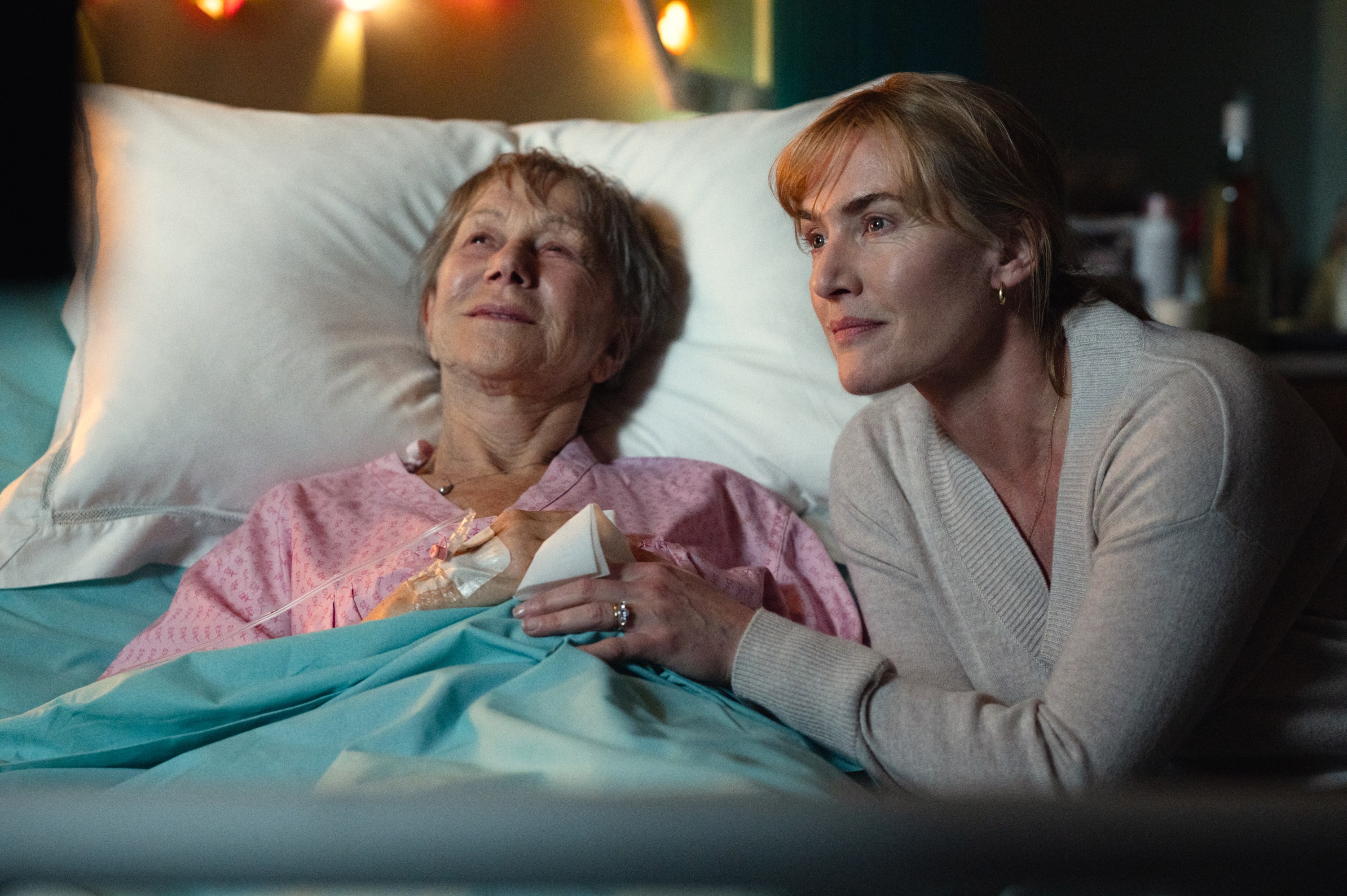
Her intimate filmmaking is matched by a performance that helps anchor Goodbye June, portraying Julia, the daughter who needs to put her demanding career on hold to be there for her family. Though she doubted her ability to wear so many hats on the set — and did think about giving the role up until close to filming — Winslet felt the role Anders had created in her bones, and realized he’d opened up a new avenue for her as an actress.
“I so often play Americans, and actually rarely do I get to play English people. In [Goodbye June] I was playing versions of all of my friends — the guilty-busy mother syndrome, being part of a large family and learning how to love and communicate with completely different sets of personalities all coming from the same woman,” she says. “There was so much about the story that reminded me of all the great films that I love — like Secrets and Lies, Happy-Go-Lucky, Life Is Sweet — and that have stayed with me. Very rarely have I gotten to play roles that feel like they exist right now in this world.”
Perhaps it was that, or the personal nature of the project, or simply getting to explore their relationship in a new register — but things got teary between Winslet and Anders on the Goodbye June set. “We did cry quite a lot,” Anders says, noting the strong mother-son theme that emerges between Mirren’s and Flynn’s characters. “Making this movie with my mom, and watching that dynamic play out on screen, was quite emotional in strange ways.” There’s also a poem that Anders gave Winslet for Mother’s Day years ago, and which plays a pivotal role in Goodbye June’s heart-rending climax.
“Joe and I really do have a very connected relationship — we’ve had our journey, but I know now how to be a mother to a 21-, nearly 22-year-old,” Winslet says. “I’m constantly changing as a mother of this young man.” Indeed, now she can call Anders a colleague. Yet at the end of our interview, when Winslet says, “Joe, I’m going to call you right now — please pick up,” you sense that work has finished for the moment, and it’s back to family matters.

